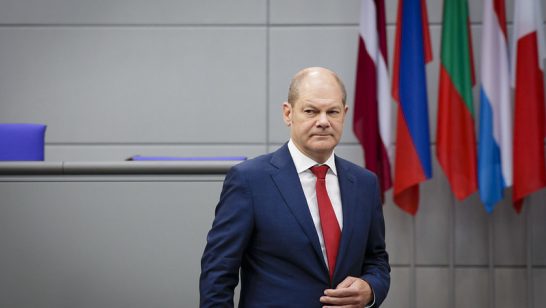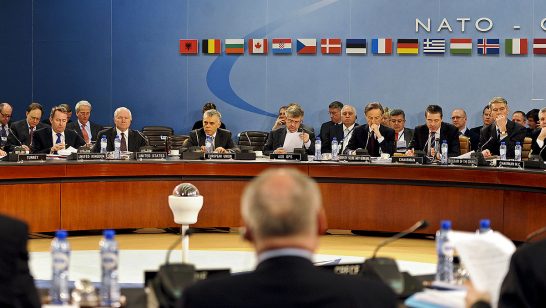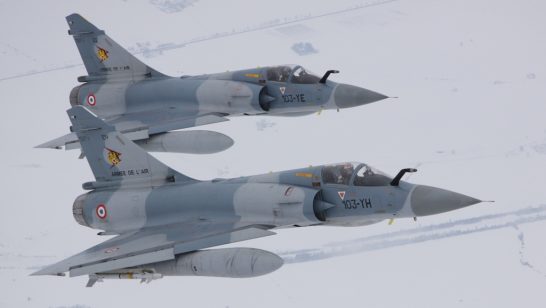
Speech Delivered to the Polish Institute For International Affairs
25th May 2011
Introduction
Thank you for those words of introduction and thank you also to the Polish Institute of International Affairs for hosting this event and for the very great assistance it has given the European Leadership Network in organising this week’s visit to Warsaw. I know something of the Institute’s high standards having interacted with it on previous occasions and I am a great admirer of its work. PISM has a growing international reputation and one of our objectives while here in Warsaw is to strengthen our relationship with the Institute and to lay the foundation for fruitful and mutually beneficial long-term collaboration between PISM and the ELN.
Let me start my comments today by saying first of all that I am not here to tell the people of this great country how to look after their own security. I am aware of some of the history of Poland, and indeed of this great city, and I know a little of the pain and tragedy that on more than one occasion has characterised it. I know also that the relationship with Russia before, during and after the Soviet period has been intensely problematic and that still today this relationship is the cause of deep concern. I bring no claim to a higher truth on how we can improve the relationship with Russia, and in fact my primary reason for being here this week is to learn from the officials, minsters, politicians and analysts that we will meet while here.
Nevertheless, I am grateful for this opportunity to say a few words to this audience about two inter-connected issues that concern me greatly, namely the world’s growing nuclear dangers on the one hand, and the NATO-Russia relationship on the other and since you have been kind enough to come along, I intend to be as challenging as I can be, in the hope of stimulating some debate.
I will be pleased to take comments and questions afterwards, and I am pleased also that my colleagues, Søren Gade and Jan Kavan have agreed to join me in the question and answer session, to offer their own reflections on the issues raised.
In the balance of my remarks today I want to argue five things:
• First, that the world’s nuclear dangers are increasing;
• Second, that the legacy of Cold war thinking about deterrence in the NATO-Russia relationship is one driver of this phenomenon;
• Third, that there is a strong case for much greater cooperation between NATO and Russia;
• Fourth, that European leaders hold a pivotal not marginal position in re-shaping the NATO-Russia relationship and;
• Fifth, that building the new cooperation, and in the process helping to address the world’s growing nuclear dangers, now requires some very specific steps.
1. The World’s Growing Nuclear Dangers
To turn to the first of these let me start by acknowledging the good news.
Nuclear weapons in state inventories peaked at around 70,000 warheads in the mid 1980s, since when, they have declined to today’s figure of around 23,000.
This is a major step in the right direction but there, I’m afraid, the good news largely ends. Many policy-makers around the world have pocketed these reductions and decided the nuclear problem is under control: nuclear policy as a result is not seen as an urgent priority. The New START Treaty between the U.S. and Russia is seen as further evidence of progress, as is talk of a further possible follow-on treaty.
Let me say I welcome the reductions in warhead numbers in recent decades and I welcome the New START Treaty, but the conclusion that this problem is under control is short-sighted and it ignores a few inconvenient truths.
It should be kept in mind that nuclear force modernisation programmes are underway in ALL of the currently nuclear armed states of the world.
Almost all are continuing to produce either new or modernized nuclear warheads AND better and more dangerous delivery systems.
Russia and the United States, though at lower numbers than in the 1980s, have recommitted to maintaining a triad of land, sea and air launched strategic nuclear systems for decades to come. China and India are seeking to build such a triad, and France and the United Kingdom, my own country, have pledged to keep and invest in their nuclear weapons for the long term.
India and Pakistan, two countries that have fought three wars with each other and at least one other major skirmish in recent decades, are also both increasing their nuclear forces and building new plutonium production reactors which could add to their fissile material stocks and warhead production potential.
I put it to you that there is little sign in any of these states that a future without nuclear weapons is actively being contemplated. Total numbers of weapons may be going down due to US and Russian reductions but in several other places they are going up.
Just as worrying is the strategic narrative that accompanies the nuclear force enhancements just mentioned.
The Russian programme, for example, is said to be a response to concerns over U.S. ballistic missile defence, to advanced conventional capabilities like Conventional Prompt Global Strike, and to improved US intelligence and surveillance capabilities.
The Chinese programme for its part is justified by reference to US and Indian capabilities, and India’s programme is driven by fear over both Pakistan and China.
French nuclear weapons modernisation has been justified by President Sarkozy explicitly as a response to stockpiles elsewhere that ‘keep on growing’ while in the UK the weapons are seen as an insurance policy against the possible long-term re-emergence of a state-based nuclear threat to our national security.
Furthermore, in several of the nuclear armed states, nuclear weapons are assigned roles in national security strategy that go well beyond deterring a nuclear attack. This is the case in Russia, Pakistan and France (and can be assumed in relation to Israel and North Korea).
At the same time, it is shocking to know that several thousand weapons, principally but not only in the US and Russian arsenals, remain on very high states of alert, ready to launch at a few minutes notice and in some cases to launch on warning of a possible incoming attack. Twenty years after the end of the Cold War, this potentially leaves decision-makers minutes, not hours or days, to make decisions on nuclear weapons use. On these systems rests the future of our planet.
Beyond the existing nuclear armed states we also have to worry about further proliferation to countries like Iran, and possibly as a result, about the threat of regional proliferation cascades in regions like the Middle East. And there is also a potential threat from nuclear armed terrorist groups and a major concern that as civil nuclear power expands globally, it may be even more difficult to keep fissile material secure.
To argue that the nuclear problem is under control and not a priority in this context is complacent at best. Far from being under control it is in fact more likely that we are reaching a point of dangerous instability in the global nuclear order. There may be fewer nuclear weapons in existence than previously but they are dispersed among more states, in more unstable regions, and non-state actors are seeking to acquire them. The idea that we can replicate the stability of the Cold War stand-off between two superpowers in this context is arrogant. There is an increasing danger that if we do not work hard to eradicate nuclear weapons, they will get used somewhere with catastrophic consequences that will affect us all.
2. The Legacy of Cold War Thinking in the NATO-Russia Relationship
Turning to the second of my themes, it seems clear to me that one of the driving forces of the landscape I have just outlined is the persistence of deterrence thinking on both sides of the NATO-Russia relationship. Deterrence remains the primary security concept in this relationship almost two decades after the Cold War has ended. The US and Russia, moreover, possess 95 per cent of all the nuclear weapons on earth. The capabilities they have developed and continue to develop, both offensive and defensive, to secure themselves against each other have become important sources of potential strategic vulnerability for others and help consequently to stimulate wider investments in the global nuclear stockpiles and delivery systems that I’ve already outlined.
This entire relationship, I know, is a reflection of a lack of trust on both sides. In Russia, there is concern over the eastward expansion of NATO and over what is seen as the widespread use of NATO military power around the world, sometimes without a UN mandate. In NATO, the scars of history run deep. The pain and suffering that many people in the east of Europe suffered at the hands of the Soviet Union cannot and should not be forgotten. And the concerns go beyond history. There are worries about the real character of the current Russian state: the Russian military action in Georgia being just one example of the behaviour that worries many.
Whatever the reasons however, it is my contention that there is a strong link between the state of the US/NATO-Russia relationship and the character and strength of the global nuclear order. If the character of the NATO-Russia relationship can be changed, then a major beneficial impact on the nuclear order can be expected too.
3. The Case for Deeper NATO-Russia Cooperation
This brings me to my third point, that the case for NATO-Russia cooperation is strong.
In addition to the nuclear instability and proliferation challenge that I have warned of, the 21st century is the century in which we will have to address the global challenge of climate change. It is the century of transnational and technologically facilitated threats from global terror networks and transnational organised crime, and of the vulnerabilities that come with growing financial and energy interdependence.
There is also no more powerful a reminder that we are in a new century with new opportunities and challenges, than the ongoing Arab Spring. Whatever the history that we must cherish and honour, a new world is upon us and it won’t wait.
My point is that all of these new challenges and changes are real and none of them can be effectively handled through the prism of deterrence. All need cooperative endeavour among the world’s major countries. In all of them in my view, it is more likely that we will be successful if the US and NATO Europe cooperates with Russiarather than competes with it.
Moreover, my sense is that if we persist in approaching the NATO-Russia relationship through the prism of deterrence, we will not only perpetuate the status quo and the nuclear weapons that are associated with it. We will spend vast amounts of money we don’t have and undermine our own long-term interests in cooperating on the wider global and regional challenges that face us. In the name of safety and security, we will pin our hopes on a concept that cannot deliver safety and security in the new century.
And just in case I am accused of being a wishful thinker, let me put the case for NATO-Russia cooperation in terms closer to those associated with traditional balance of power thinking.
Russia, it seems to me, has an interest in building cooperation with NATO today because this will largely determine the nature of the Russian relationship with the West, and this in turn will impact on Russia’s choices in relations with other powers like China.
The U.S. has an interest in this cooperation because without the whole US-Russia relationship re-set sought by the Obama administration, the U.S. cannot free itself of the legacy of the Cold war and move to address new challenges to its power overseas while simultaneously addressing its fiscal crisis at home.
The European states have an interest in getting beyond deterrence thinking in the relationship with Russia because if we do not, we face the perpetual risk of a breakdown in security on our own continent and we know, from bitter 20th century experience, how catastrophic that can be.
Whether couched in the language of 21st century global cooperation or of 19th and 20th century balance of power politics, the case for NATO-Russia cooperation is strong.
4. European Leaders are Pivotal
Turning to my fourth point, let us be clear: European peoples and their political leaders have a crucial role to play in moving this relationship on. Too often, we approach this as though the only important driver is the US-Russian bilateral dialogue. This under-estimates our own role and influence as Europeans.
My case here is a simple. On the one hand, through the EU, Europeans have an opportunity to be built a genuinely cooperative and influential relationship with Russia in their own right. Less obviously, it is important to note that in the east of European NATO, we have the countries that are the most apprehensive and fearful of Russia and in the west of Europe we have some of the U.S.’s closest and most influential friends.
What the European member states of NATO say and do in relation to Russia can either empower the United States to be bold in building cooperation with Russia or be a major constraint on what progress can be achieved. The European members of NATO matter enormously: we can and do play a role in shaping the wider relationship with Russia and my argument is that we should seek to play it to speed up not slow down cooperation.
The question is how to go about it, and what in practical terms, now needs to be done.
5. The Need for Specific Steps
This brings me to my final point on the need for specific measures. I think European leaders in NATO should now push for 5 measures that would help improve the NATO relationship with Russia and in the process would help address the nuclear dangers I started my speech describing.
First, they should call on the US and Russian President’s to each task their militaries to come up, in under 12 months, with practical measures to extend nuclear alert and decision-making time in relation to their own nuclear weapons held on alert. The current alert status and posture of both the US and Russia is the most dangerous aspect of the nuclear order and the worst carry over from Cold War thinking. This needs to change as a matter of urgency.
Second, despite the difficulties involved, and notwithstanding recent Russian efforts to argue that the US should sign a treaty forbidding it from developing a missile defence system that could shoot down Russian ICBM’s, European leaders should ask that NATO pursue bold cooperation on ballistic missile defence with Russia. This should feature a NATO-Russia center to integrate data from each others early warning radars and space sensors. It could also include a resumption and expansion of joint NATO-Russia tests and training exercises on missile defence, as a mechanism to build transparency and trust.
Progress on BMD cooperation could help to transform the relationship with Russia and through the trust built, might enable greater reductions in US and Russian strategic nuclear forces which in turn would open up the prospect of multilaterlising the international conversation on nuclear disarmament, drawing in the other nuclear powers with far smaller numbers of weapons. In this sense, developments in the US/NATO –Russiarelationship have the potential to directly address some of the drivers of nuclear force modernisation that I mentioned earlier.
Third, the wider European leadership should welcome the non-paper submitted to the NATO Secretary General by Poland, Germany, Norway and the Netherlands on transparency measures in relation to non-strategic nuclear weapons and their storage locations and conditions in Europe, including in Russia. Russia has most of this category of weapons and may find transparency and confidence building measures uncomfortable but we must argue that the status quo, in which many non-strategic nuclear weapons have an uncertain location and potentially untested security arrangements, is a threat to the security of all of us, including Russia.
Fourth, however, we must resist the temptation to talk about non-strategic nuclear weapons while staying largely silent on the conventional force imbalance in Europe. It is highly unlikely that Russia will cooperate on non-strategic nuclear weapons if wider issues like the conventional force imbalance are not addressed. Russiahas some legitimate concerns in this area and we should acknowledge them and work in good faith to address them, as a matter of priority.
Fifth and last, European leaders need to push hard for a relationship with Russia that goes beyond arms control and disarmament, to embrace much wider cooperation. Trade, the attempt to collaboratively strengthen the OSCE as an organisation spanning the whole NATO-Russia-post Soviet space, and cooperation over the Arctic region should also be pursued, as should enhanced cooperation on counter-terrorism.
These measures, I know, are not enough but they are a start and without the start there will be no momentum, no accumulated trust and no opportunity to get to the higher ground we seek.
That, ladies and gentlemen is my case today. I put it to you for comment and discussion.
Thank you.
The opinions articulated above represent the views of the author(s), and do not necessarily reflect the position of the European Leadership Network or any of its members. The ELN’s aim is to encourage debates that will help develop Europe’s capacity to address the pressing foreign, defence, and security challenges of our time.



